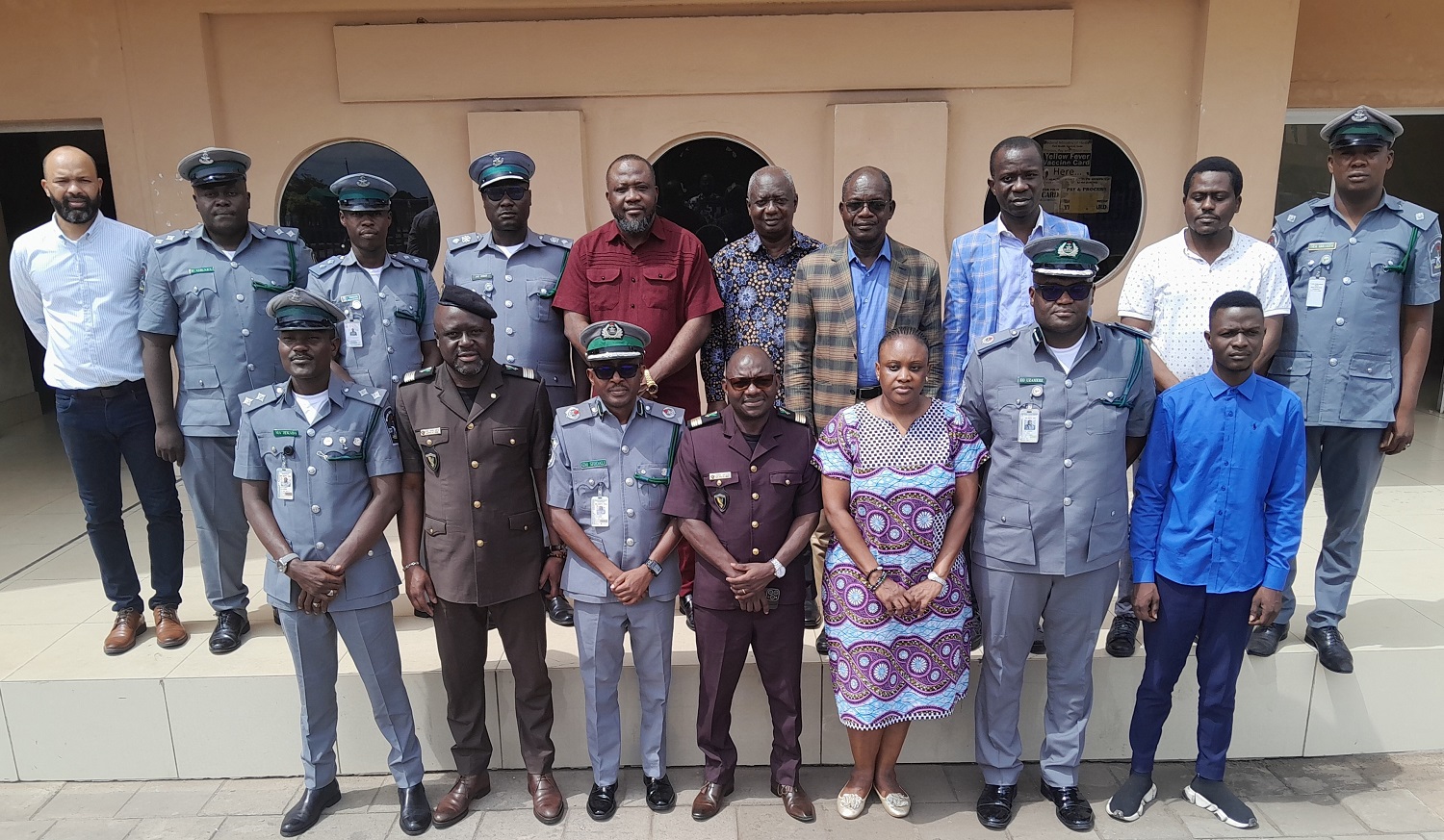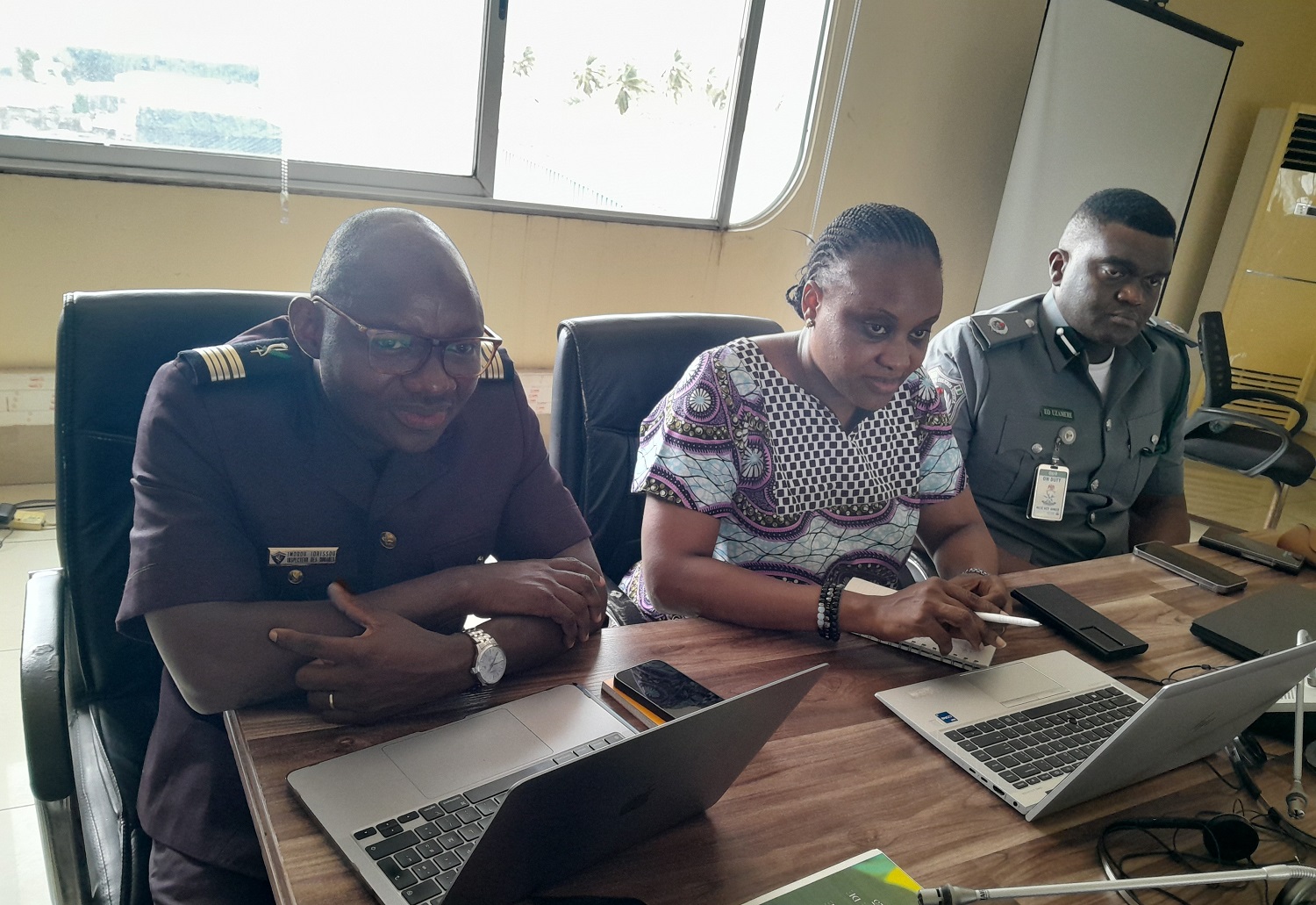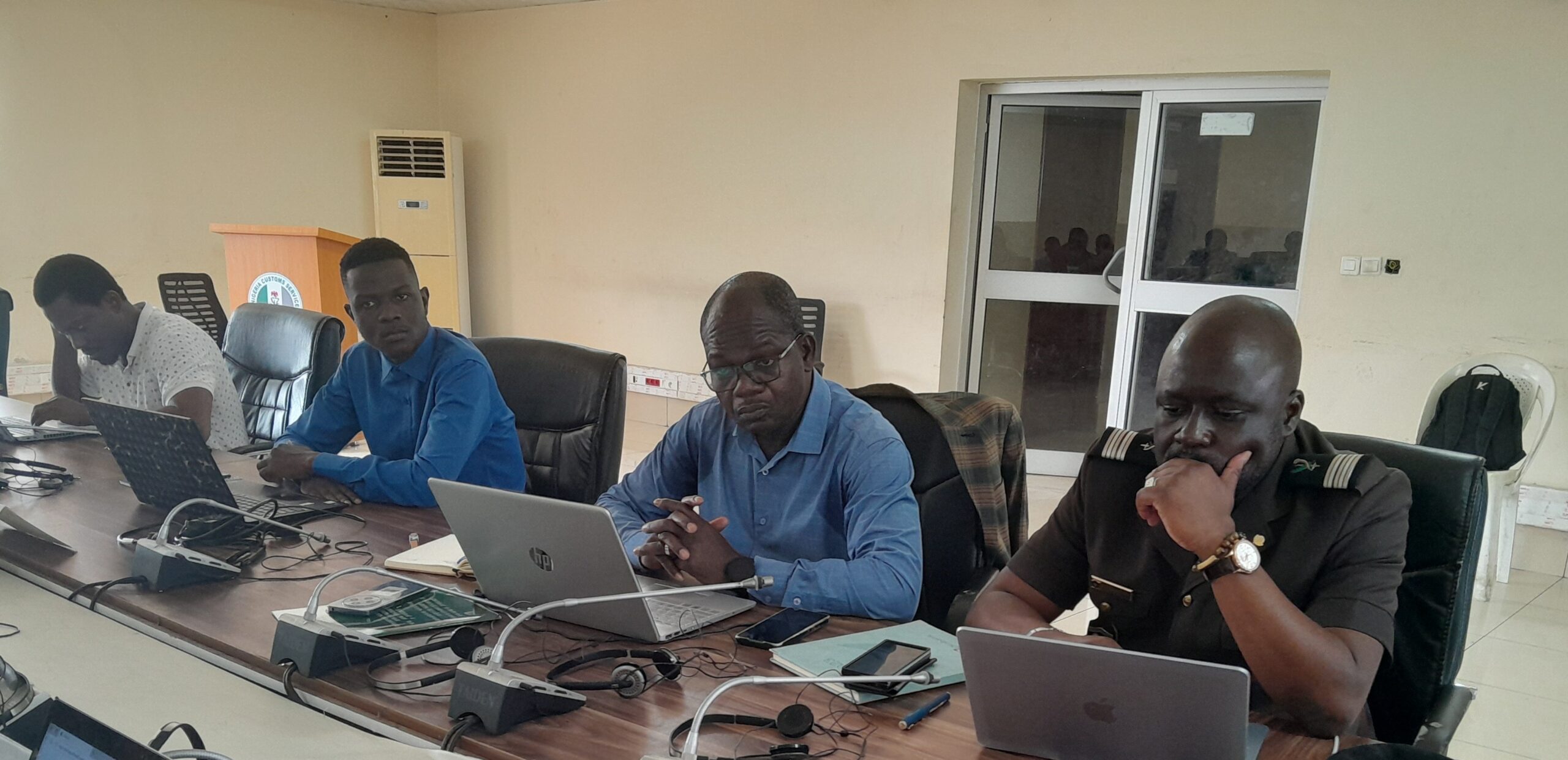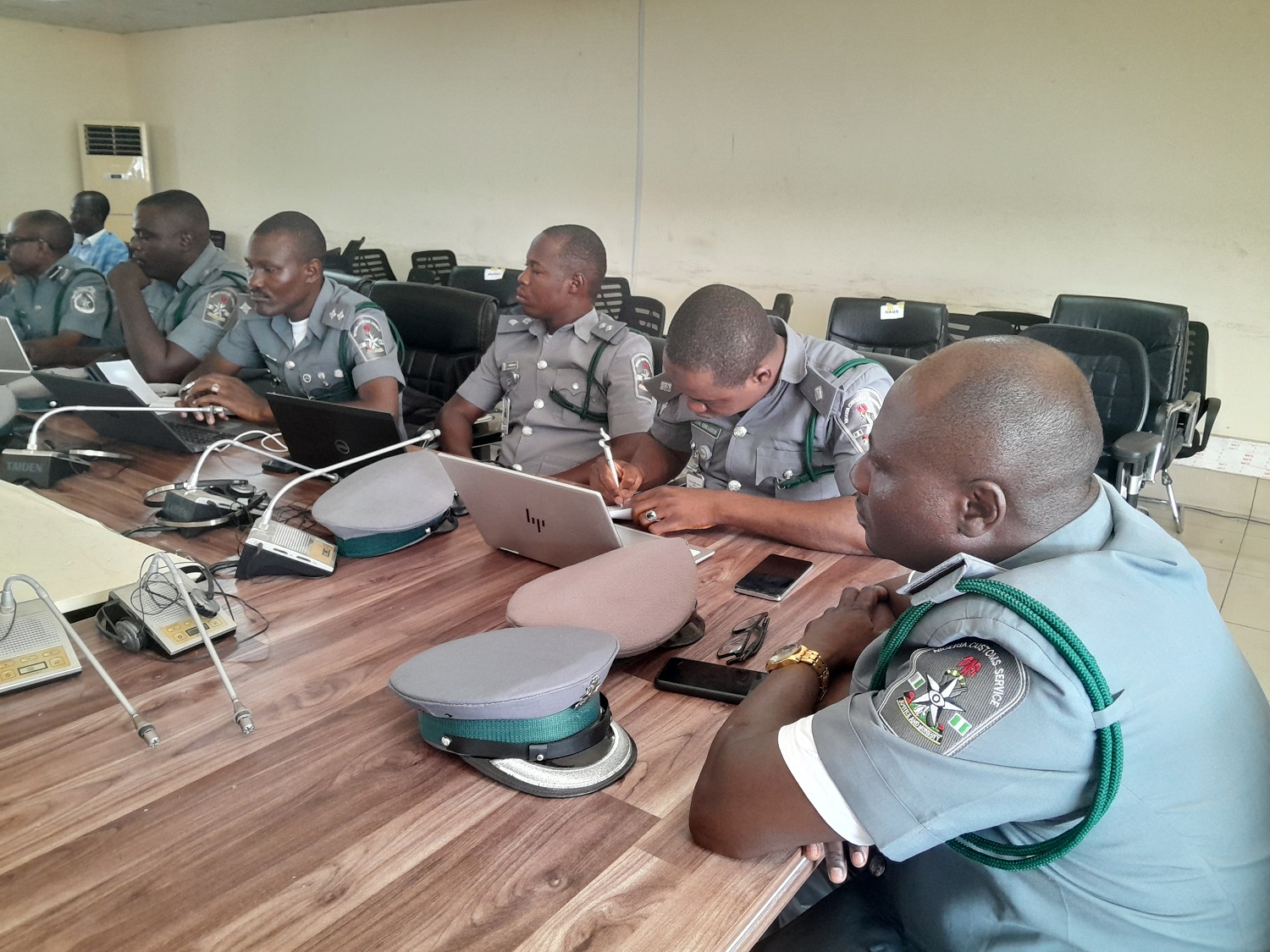Information experts from Benin and Nigeria pave the way for the official launch of sigmat deployment between their States
23 May, 2025Validation of the roadmap, that is – the timetable for the deployment of the Interconnected System for the Management of Goods in Transit (SIGMAT) between Benin and Nigeria. This was the main decision taken at a meeting of IT experts from the two countries held on Tuesday 20th of May 2025 in Sèmè-Kraké, on the Benin-Nigeria border, the day after the launch of the system.
This roadmap includes in particular the test phase, which will enable technicians to work daily for a certain number of hours, with the aim of improving communication between the servers in the two States.
It also covers the configuration for production start-up in the basic system, meaning that the technicians will have to work on the respective servers in these states.
Another part of the roadmap concerns the activation of the pilot site and exchanges. Technicians will be working for a fortnight to activate the pilot site and evaluate message exchanges.
Training and awareness-raising in the public and private sectors are also part of the roadmap. Beninese and Nigerian customs officers will be trained, as will other officials involved in using SIGMAT. The same applies to the training and awareness-raising of Beninese and Nigerian economic operators on the same dates, but in each country. The Commission of the Economic Community of West African States (ECOWAS), with the support of the German Agency for International Cooperation (GIZ), will provide technical and financial assistance to Benin and Nigeria in this area.
Other elements of the roadmap include the extension of SIGMAT to the other borders (routes) of Benin and Nigeria, and the proposed date for the official SIGMAT launch ceremony in Sèmè-Kraké.
Before the roadmap was validated, the Beninese and Nigerian computer experts reviewed the progress of work on the deployment of SIGMAT in their respective countries and the work in progress.
Key actions need to be implemented before SIGMAT can be effectively deployed between Benin and Nigeria. Among these actions, the IT experts from the two States have identified the development of the regulatory framework, the configuration of communication nodes, the development of a plan and a test phase, the technical configuration of SIGMAT, the activation of the pilot site and the generalisation of interconnection between the two States.
The meeting provided an opportunity for the ECOWAS Commission to give a presentation on the state of play regarding the management of the Sèmè-Kraké juxtaposed checkpoint on the border between Benin and Nigeria, as well as on the state of the equipment used by officers and users of this infrastructure.
Subsequent meetings will be held between the Beninese and Nigerian parties and the ECOWAS Commission on the report of an evaluation mission initiated by the latter, in order to find a point of convergence for compliance with the bilateral agreement signed by Benin and Nigeria in this context and also for better management and coordination of the Sèmè-Kraké juxtaposed checkpoint.
Osamwonyi Ehigie Uzamere, Head of the IT Unit of the Nigerian Customs Service and Chairman of the meeting, expressed his gratitude to the participants for their relevant and constructive contributions to the deliberations. He urged the experts to work together to ensure the success of SIGMAT.
For her part, Aïssata Yaméogo Koffi, in charge of Rules of Origin and Common Preferential Treatment, on behalf of Salifou Tiemtoré, Director of the Customs Union and Taxation at the ECOWAS Commission, congratulated the participants on their dedication, which had made the meeting a success.
Officially launched in 2019, SIGMAT is designed to provide an integrated customs IT solution to facilitate faster processing of goods in transit across the borders of ECOWAS member states, and in turn boost intra-regional trade.
By facilitating the exchange of financial information, SIGMAT will make it possible to reduce delays for goods in transit across the borders of ECOWAS member states, combat customs fraud and tax revenue losses, strengthen regional economic integration and improve the efficient management of public finances at national and regional level.
Clearly, this system aims to facilitate intra-regional trade, reduce customs red tape and promote economic growth in the ECOWAS region. It bears witness to the considerable efforts made by ECOWAS to improve the management of trade and transport, strengthen West Africa’s competitiveness on the international stage and increase transparency in the movement of goods within the community.




















